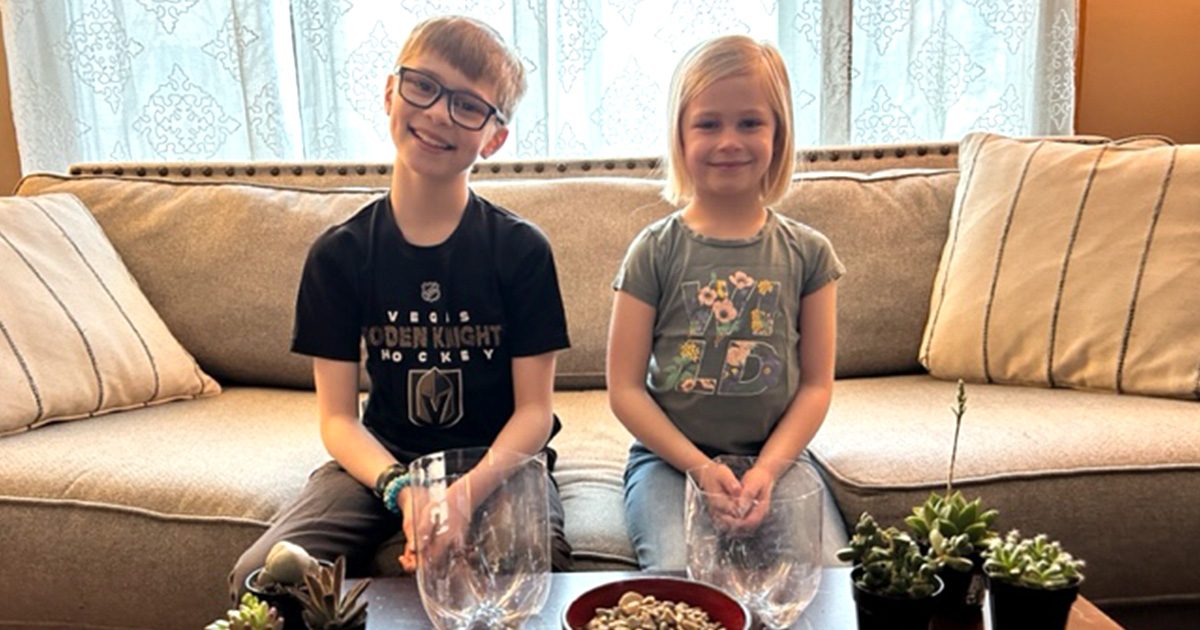- 877.684.1613
- Schedule a Tour

April brings about many seasonal changes as we begin to say goodbye to winter and hello to spring.
Soon, those living in colder climates will see the shift happen right before their eyes! Buds will begin popping up on deciduous trees as the leaves return, shoots will start sprouting up in the landscaping as perennial blooms awaken, and lawns will shift from dull yellows and browns to vibrant shades of green.
For this month’s kid-friendly craft, we’re bringing the renewal of the outdoor world inside, by creating our own upcycled terrarium. It’s essentially a tiny little greenhouse giving you a little window into the lush world of botany on a small scale. As a nod to Earth Day (April 22), we’re using upcycled materials too.
Watch this video of our friends Grace (7) and Paxton (10) as they put one together with the help of their mom, Mara, a Family Admissions Specialist with Learning Care Group. Then, make your own!
Visit your local plant shop, potting shed, or backyard to gather the supplies listed below. Wondering about the worm? Look around after an April rain shower—you only need one! The birds do it …
- Empty plastic bottle
- Scissors
- Soil
- Pebbles
- Plant(s)
- Water
- Worm (optional)
Ready to get started? If the weather is nice, this is a great craft to do outside. If not, cover your workspace with newspaper to contain the mess of our fun, hands-on creation.
- Begin by carefully cutting the plastic bottle in half. Set the top aside, you’ll need it later.
- Your first layer will be pebbles. Pour in a healthy amount, maybe a couple inches or so.
- Now add the soil so your plants have nutrients to feed on.
- Next, poke a few holes down into the soil with your finger, one for each small plant.
- Give your plant(s) a small drink of water. Moisten the soil, don’t saturate it. Watch as the excess water trickles down into the pebble layer.
- If you choose to use a worm, drop one in now! What do you think will happen? Will it stay on top? Will it burrow down below the surface? Have fun doing a little research with your child. Earthworms provide nutrient-rich fertilizer and help to aerate the soil.
- Use the top of the bottle as your terrarium lid (and to keep that worm in its new home).
- Put your creation on a sunny windowsill.
You’ve just created your own contained ecosystem! Observe how the plant changes with the moist air and the greenhouse effect of the sunlight. Watch how the worm acts as it gets to know its new habitat.
Your upcycled terrarium certainly won’t last forever, but it’s a great activity to spark conversations about sustainability while reusing common materials to bring a little magic to our day.
